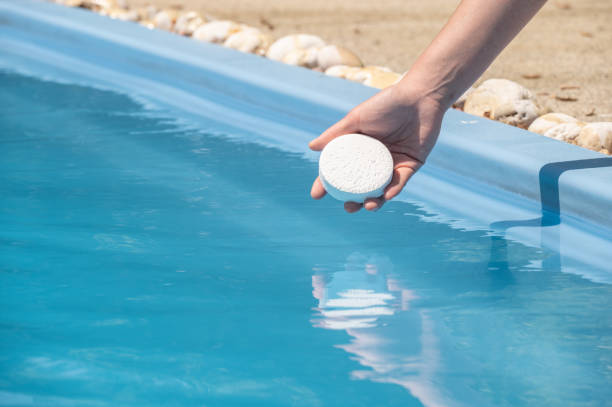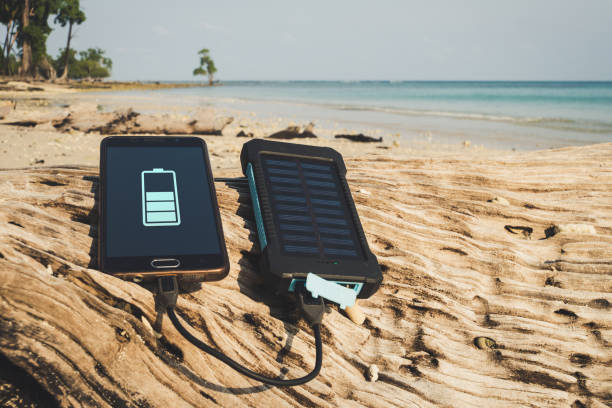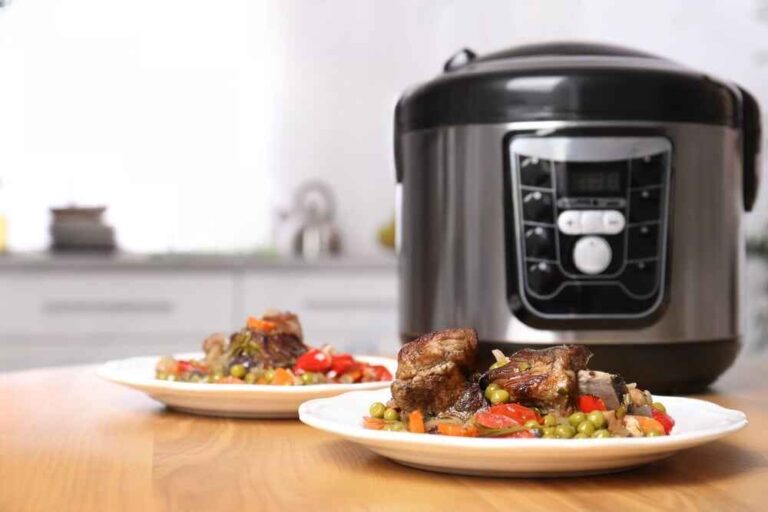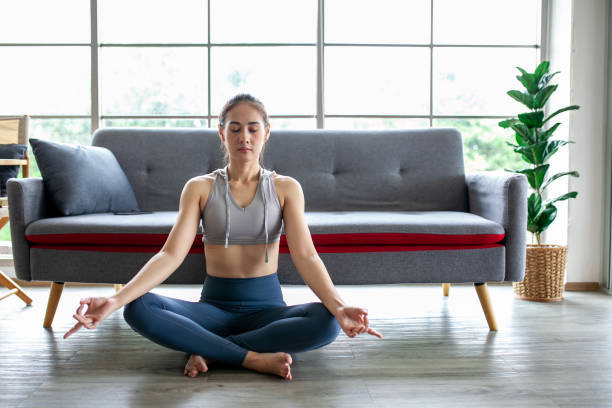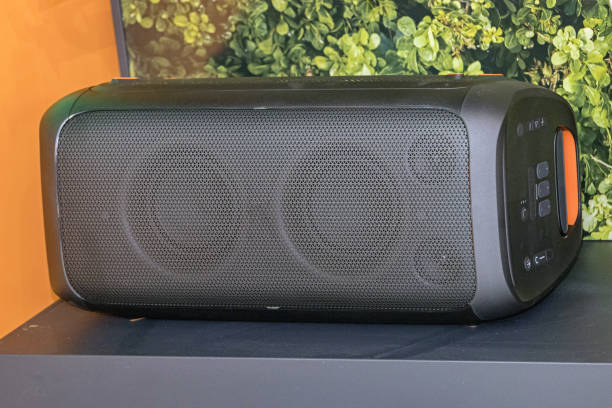The Best Commercial Espresso Machines: A Complete Guide
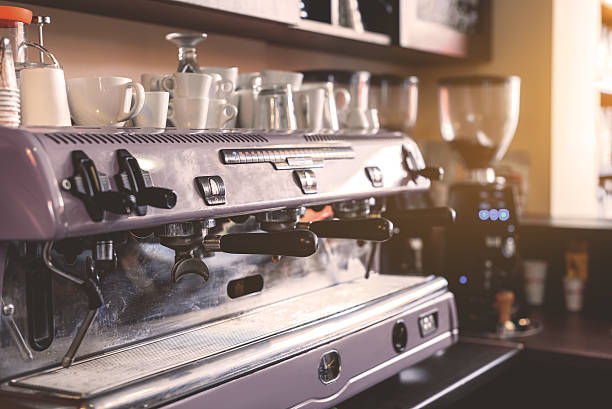
Are you a coffee enthusiast dreaming of owning a cafe or upgrading your home espresso setup? Choosing the right commercial espresso machine is crucial to delivering that perfect, aromatic cup of coffee every time. With so many options on the market, it can be overwhelming to find the one that suits your needs perfectly.
In this complete guide to the best commercial espresso machines, we’ll walk you through everything you need to know before making that investment. From considering your budget and space requirements to understanding different types of machines and their features, we’ve got you covered.
What is a Commercial Espresso Machine?
Before diving into the specifics of choosing the best machine for your needs, let’s start with the basics. What exactly makes an espresso machine “commercial”?
At its core, a commercial espresso machine is designed to handle the high demands of a business environment. Whether you’re making dozens or hundreds of cups a day, these machines are built to perform consistently, under pressure, and over long hours. Unlike consumer-grade machines you might find in a home kitchen, commercial models are constructed with durability, larger capacities, and features that are built to last.
Factors to Consider When Choosing a Commercial Espresso Machine
Choosing the right commercial espresso machine is a big decision—it’s an investment that can make or break your coffee service. We’ve broken down the key factors to consider before making a purchase, so you can confidently select the best machine for your needs.
Capacity
One of the first things to think about is how much coffee you plan to serve. The last thing you want is a machine that can’t keep up during peak hours. Commercial espresso machines come in different sizes, so it’s important to choose one that suits the volume of coffee you need to make daily.
- Low-Volume (Small Cafes or Offices): If you’re a smaller business or just brewing a few cups at a time, a more compact machine like the Breville Barista Pro or Rancilio Silvia Espresso Machine might be all you need. These are great for serving 50-100 cups a day.
- High-Volume (Busy Cafes & Restaurants): If you’re expecting a steady flow of customers all day long, you’ll want something that can handle hundreds of cups a day, like the La Marzocco Linea Mini or Nuova Simonelli Appia II. These machines have larger boilers and multiple group heads to ensure you’re always ready for the next order.
Type of Machine
Espresso machines come in a few different types, each offering different levels of control, automation, and ease of use. The right choice depends on your preferences and the skill level of your baristas.
- Semi-Automatic: These are a great option if you want a balance of control and convenience. You’ll still have to grind, tamp, and monitor the extraction, but the machine does the rest. The Rancilio Silvia is a great example of this, offering excellent control without the complexity of a fully manual machine.
- Automatic: Automatic machines take care of most of the work for you. With just the press of a button, the machine will handle the extraction and water flow. Nuova Simonelli Appia II is a reliable choice for this category, perfect for a more hands-off approach without sacrificing quality.
- Super-Automatic: These machines do it all—from grinding the beans to frothing the milk—making them a great choice for high-traffic locations where speed is key. The Jura GIGA 6 and Saeco Aulika Top HSC are both great super-automatic options, offering convenience at the push of a button.
- Manual: If you want full control over every aspect of the espresso-making process, then a manual machine might be your best bet. Machines like the Kees van der Westen Spirit are great for experienced baristas who enjoy crafting every shot by hand.
Size & Space
Commercial espresso machines are large, and you need to ensure that you have enough space for your chosen model. It’s not just about the machine’s physical size but also how much counter space you have available for grinders, tamping stations, and milk frothing equipment.
Take measurements of your counter space before purchasing and make sure the machine you choose can comfortably fit. For smaller spaces, compact machines like the Rancilio Silvia Espresso Machine or Breville Barista Pro are perfect. Larger machines like the La Marzocco Linea Mini or Victoria Arduino Black Eagle will need more room to breathe.
Build Quality
Commercial espresso machines are built to last, but not all machines are created equal. High-quality materials, such as stainless steel and brass, ensure the machine can withstand daily use, even in the busiest cafes. Look for machines with robust internal components and durable exteriors to ensure long-lasting performance.
Machines like the Synesso MVP Hydra or La Marzocco Linea Mini are known for their durability and top-notch build quality. While they may cost a bit more upfront, they’ll save you money in the long run by lasting for years without major repairs.
Ease of Use
An easy-to-use espresso machine can make all the difference when you have a busy team behind the counter. Machines with intuitive controls, clear displays, and programmable settings can save time and reduce errors.
Look for machines with features like:
- Touchscreens or digital displays for easy monitoring
- Programmable shot volumes for consistency
- Easy-to-operate steam wands for milk frothing
The La Marzocco Linea Mini and Nuova Simonelli Appia II are both known for their user-friendly designs that help baristas work efficiently, even during rush hours.
Maintenance
Keeping your machine in tip-top shape is crucial for producing great espresso and extending the machine’s lifespan. Look for machines that are easy to clean, with removable drip trays, accessible components, and easy-to-follow cleaning procedures.
Machines like the Breville Barista Pro offer simple cleaning processes, while others, like the Victoria Arduino Black Eagle, offer features that make it easier to maintain consistency in cleaning.
Top Features of a High-Quality Commercial Espresso Machine
When you’re shopping for a commercial espresso machine, you’ll want to look beyond the basics. The best machines come packed with features that not only help you make incredible espresso but also make your job easier. Here are the top features that can elevate your espresso game and ensure you’re getting the most out of your machine:
Boiler Type
The boiler is the heart of your espresso machine—it heats the water used for brewing. There are a few different types of boilers, each offering different advantages:
- Single Boiler: As the name suggests, a single boiler handles both brewing and steaming. While these are generally more affordable and take up less space, they can only perform one task at a time. For smaller operations, machines like the Breville Barista Pro with a single boiler can still get the job done effectively.
- Double Boiler: These machines have separate boilers for brewing and steaming, which means you can brew and steam milk simultaneously. The La Marzocco Linea Mini is a great example of this type, giving you the flexibility to prepare drinks faster without compromising on quality.
- Heat Exchange: Heat exchange machines like the Nuova Simonelli Appia II offer the best of both worlds—they allow you to brew and steam at the same time, and they do so with more temperature stability than single boilers. They’re ideal for medium to high-volume settings.
Each type has its strengths, but double boilers and heat exchange systems are generally preferred in high-volume environments for their ability to handle multiple tasks at once.
PID Temperature Control
Temperature is everything when it comes to espresso. If your water isn’t at the right temperature, you’ll end up with bitter or sour coffee. That’s where PID (Proportional-Integral-Derivative) temperature control comes in.
A PID system keeps your water temperature stable and accurate, which is critical for consistently good espresso. Machines with PID controls, like the La Marzocco Linea Mini or the Victoria Arduino Black Eagle, ensure your espresso is brewed at the optimal temperature, shot after shot. This is especially important when making specialty coffees where precision matters.
Pressure Profiling
Pressure profiling is a feature found in some of the more advanced machines, like the Synesso MVP Hydra. It allows you to adjust the pressure throughout the espresso extraction process, which can drastically impact the flavor and texture of your coffee. You can experiment with different pressure profiles to create a custom extraction that highlights the unique flavors of your beans.
While this feature may be more of a “nice-to-have” for some, it’s a game-changer for cafes that want to push the envelope in their espresso offerings. It gives you the ability to refine your shots and experiment with different extraction profiles.
Pre-Infusion
Pre-infusion is a process where the machine wets the coffee grounds with a small amount of water before applying full pressure. This helps ensure even extraction and results in a more balanced, flavorful shot with a rich crema.
Machines like the Nuova Simonelli Appia II or the La Marzocco Linea Mini come with pre-infusion settings that allow you to create smoother, more consistent shots. Pre-infusion is particularly helpful for light roasts, which benefit from a slower, gentler extraction.
Grinder Compatibility
You’ve probably heard it before, but it bears repeating: a great espresso shot starts with a great grind. A quality grinder is just as important as the espresso machine itself. Ideally, you want to pair your espresso machine with a grinder that can deliver consistent, uniform grinds for optimal extraction.
Machines like the Jura GIGA 6 or the Kees van der Westen Spirit are often paired with top-tier grinders to ensure the best possible shot quality. Many high-end machines also have built-in grinders, but if your machine doesn’t, make sure to invest in a grinder like the Mazzer Super Jolly or Baratza Forte for the perfect grind consistency.
Steam Wand Quality
For cafes that serve lattes, cappuccinos, and other milk-based drinks, the steam wand is a critical feature. You want a steam wand that’s powerful and easy to use, giving you the ability to froth milk to the perfect texture without any hassle.
Machines like the Victoria Arduino Black Eagle and Faema E71E are known for their high-quality steam wands that deliver powerful steam for creating silky, microfoam. The La Marzocco Linea Mini also offers a highly regarded steam wand that gives baristas control over their frothing, ensuring consistent results every time.
User Interface & Controls
No one wants a machine that’s complicated to use, especially during the morning rush. Look for a commercial espresso machine with a clear, intuitive user interface. Modern machines, like the Jura GIGA 6 or Nuova Simonelli Appia II, offer touchscreen controls and programmable settings that simplify the brewing process.
These features make it easier to train your staff, increase efficiency, and reduce the likelihood of mistakes—allowing you to focus on what really matters: serving great coffee.
Reviews of the Best Commercial Espresso Machines
Now that we’ve covered the essential factors and features to consider, it’s time to dive into some of the best commercial espresso machines on the market.
Let’s take a closer look at some top picks for different types of businesses and budgets.
Best for Small Businesses
If you’re running a small café, coffee shop, or even an office break room, you don’t need a massive, industrial machine to get great espresso. A compact, efficient machine that can handle the volume while offering consistent results is what you’re looking for.
Rancilio Silvia Espresso Machine

Why It’s Great: The Rancilio Silvia has long been a favorite for small coffee shops and home espresso enthusiasts alike. It’s a semi-automatic machine with excellent build quality and a simple, user-friendly interface. The 58mm commercial-sized portafilter ensures you’re getting a consistent shot, and the steam wand gives you enough power to froth milk for your lattes and cappuccinos.
Pros: Affordable, durable, compact design, reliable steam wand.
Cons: Single boiler, so brewing and steaming can’t be done at the same time.
Breville Barista Pro

Why It’s Great: This all-in-one machine is perfect for those just starting out. It’s an easy-to-use, semi-automatic espresso machine with a built-in grinder, PID temperature control, and a solid steam wand. It’s ideal for those who want convenience without sacrificing quality.
Pros: Affordable, built-in grinder, intuitive interface, fast startup time.
Cons: Smaller water tank, not ideal for very high volumes.
Best for High-Volume Cafes
If you’re managing a busy coffee shop or restaurant with constant foot traffic and orders coming in at all hours, you’ll need a commercial espresso machine that can keep up with the demand. These machines are designed for speed, durability, and performance:
La Marzocco Linea Mini
Why It’s Great: Known for its durability and consistency, the Linea Mini is a top choice for high-volume cafés. It features dual boilers, PID temperature control, and a user-friendly interface. It’s compact but built like a tank, handling multiple orders without breaking a sweat.
Pros: Dual boilers, excellent temperature control, great for high volumes, robust build.
Cons: Higher price point, larger footprint.
Nuova Simonelli Appia II

Why It’s Great: The Appia II is built for heavy-duty use. It’s perfect for cafes that need a machine that can handle constant demand without compromising on quality. With advanced pressure control and easy programmability, it ensures every shot is consistent, whether you’re making one espresso or twenty.
Pros: High volume capacity, durable, customizable settings, easy to use.
Cons: Larger machine, more expensive.
Faema E71E
Why It’s Great: The Faema E71E is designed for busy cafes that require precision and performance under pressure. With a beautiful aesthetic and advanced pressure profiling capabilities, it provides an incredible espresso experience. The machine also features a customizable interface and automated settings, which makes it easier for staff to operate.
Pros: High-end design, customizable pressure profiling, great for high-volume.
Cons: Expensive, large machine.
Best for Super-Automatic Machines
Super-automatic machines are perfect for businesses where speed, consistency, and convenience are crucial. These machines take care of everything from grinding the beans to frothing the milk, making them ideal for high-traffic locations or workplaces that need to get coffee to people quickly.
Jura GIGA 6

Why It’s Great: The Jura GIGA 6 is one of the top super-automatic espresso machines available today. It’s designed for those who need the ultimate convenience without sacrificing quality. With its dual grinders and dual brewing systems, it can handle up to 200 cups per day and brew multiple drinks simultaneously. It also offers a sleek touchscreen interface for easy customization.
Pros: Super easy to use, high-capacity, quick, and efficient.
Cons: Expensive, more suitable for offices or low-volume cafes.
Saeco Aulika Top HSC
Why It’s Great: The Saeco Aulika Top HSC is a reliable super-automatic machine perfect for office spaces or smaller cafes. It has a robust design and features a milk frother that makes it easy to create espresso drinks with a rich crema and velvety milk.
Pros: Quick and easy to operate, consistent results, durable.
Cons: Lacks some of the advanced features found in higher-end machines.
Best High-End Machines
If you’re aiming to offer a luxury experience to your customers, a high-end espresso machine is an investment that can make your café stand out. These machines often come with advanced features and exceptional build quality, delivering top-notch espresso shots and milk froth.
Synesso MVP Hydra
Why It’s Great: The Synesso MVP Hydra is a professional-grade espresso machine designed for serious baristas and coffee shops that want to experiment with different extraction profiles. The machine offers exceptional pressure control and temperature stability, allowing you to dial in the perfect shot for each batch of beans.
Pros: Advanced pressure profiling, temperature stability, excellent build quality.
Cons: Expensive, may be overkill for smaller shops.
Victoria Arduino Black Eagle
Why It’s Great: The Victoria Arduino Black Eagle is a premium espresso machine that blends advanced technology with exquisite design. It offers state-of-the-art pressure profiling, exceptional consistency, and precise temperature control, making it ideal for high-end cafés or those with a focus on specialty coffee.
Pros: Gorgeous design, top-tier espresso quality, customizable settings.
Cons: Very expensive, larger size.
Kees van der Westen Spirit
Why It’s Great: The Kees van der Westen Spirit is one of the most stylish and high-performance espresso machines on the market. It’s a showstopper with its sleek design and high-tech features. This machine is built for precision and consistency, making it ideal for serious coffee connoisseurs.
Pros: Stunning design, exceptional espresso quality, built to last.
Cons: Very high price point.
Take Away
In conclusion, picking the right commercial espresso machine is very important for your business success. Think about precision, reliability, and what your baristas need to help you decide. You can choose the popular La Marzocco Linea PB X or the stylish Victoria Arduino Black Eagle. Both machines have special features that can improve your coffee menu. Always focus on quality, efficiency, and how easy it is to use when choosing the best espresso machine for your business. If you want more tips or have questions about commercial espresso machines, please leave a comment below. Your feedback is important to us.
Frequently Asked Questions
What is the best espresso machine on the market?
Many brands make high-quality espresso machines, such as La Marzocco and Slayer. Your best machine choice depends on your budget. It also depends on the features you want, like automatic cleaning cycles. Finally, consider the design of the machine to find what suits you.
Why is La Marzocco so expensive?
La Marzocco machines cost a lot because they are made very well. They have a strong brand reputation. They also come with innovative features like dual boilers and saturated group heads. These things make the price point higher.
How expensive are commercial espresso machines?
Commercial espresso machines vary widely in price. This pricing is based on brand reputation, features, and brewing capabilities. The costs start at about $5,000 and can go over $25,000. Features such as steam wands and automatic espresso machines also affect the price. Accessories included with the machines can make a difference too.
What espresso machine does Mcdonald’s use?
In places like McDonald’s, they have automatic espresso machines that make a lot of coffee quickly. These machines have automatic cleaning cycles that help brew efficiently. The brands of these machines may differ depending on the location and franchise deals.
* Voyedy may receive compensation for purchases made at participating retailers linked on this site. This compensation does not affect the products displayed or their order. Learn more here.

